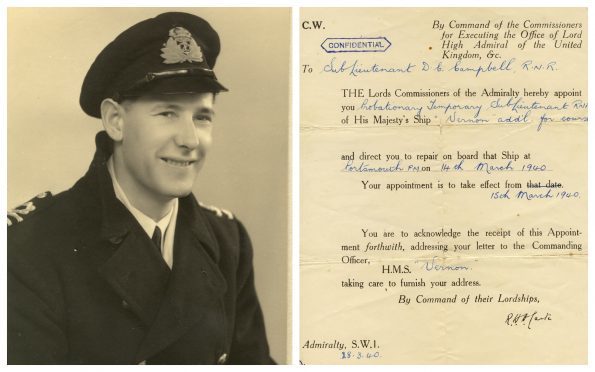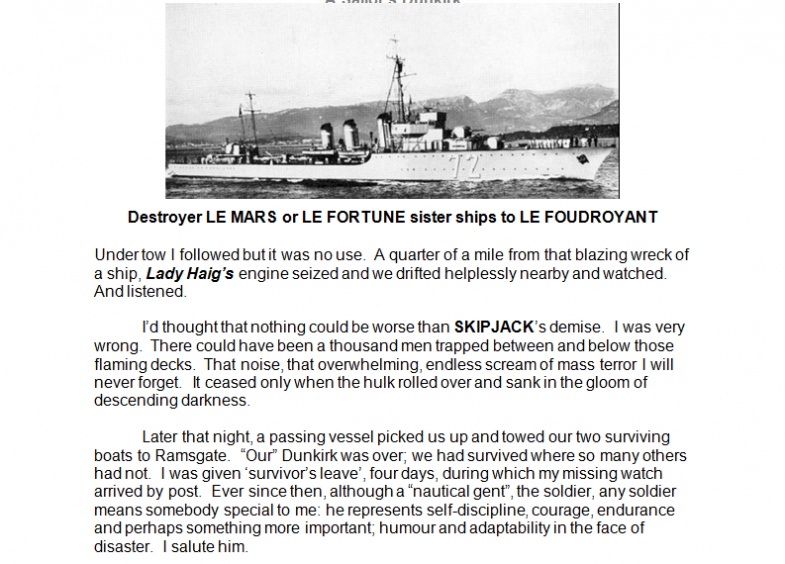In the week Christopher Nolan’s big-budget retelling of the Dunkirk evacuation is released, a Lochaber sailor posthumously tells his real-life story from the beaches.
Lt Donald Campbell’s striking personal account includes vouching for the Royal Air Force’s huge involvement on the day – a fact verified nationally in a very recent raising of an official secrets gag.
The seaman’s own experience sheds light on the long-standing myth that the RAF failed to support troops on the ground, leading to one of the most difficult days in British Army history.
Nearly 80 years after civilian ships answered the call to sail across the English Channel and ferry hundreds of thousands of stranded troops, Lt Campbell’s memoirs reveal how RAF pilots were targeted for abuse in the immediate aftermath.
He writes: “Later, when this hell subsided, returning soldiers beat up RAF personnel on sight, blaming them for what they had gone through, as they thought, without air support.
“The air force was there. Twos and threes, gallant in their pitiful few in the face of the Luftwaffe air fleets comprising twenty or thirty units; attacking again and again and not always in vain. Not all those parachuting men were German.”
Lt Campbell’s first-person account provides key documentation of one of the most important events in British Army history but also serves as a striking insight into the ordeal endured by those on the ground.
In one particularly moving passage, he writes: “Never will I forget the courage, self-discipline and patience of these exhausted, shell-shocked men. I gazed along the beach at the smoking rubble, abandoned transport and discarded equipment; interspersed with the towering bomb bursts and the still figures sprawled in the sand.
“These men had been marching and fighting for a week or more; with little food and less sleep, inadequately armed and on the move the whole time under unrelenting attack from the air; morale should have been non-existent. Their sense of betrayal, lack of direction or purpose must have been soul destroying.
“But they could still laugh, crack a joke and help the wounded, who were always lifted in first into the waiting boats. Few were without packs; none that I could see lacked a rifle or ‘Bren’ gun. I never felt more proud of my countrymen until that moment.”
Lt Campbell’s daughter Alison Hart, speaking at her home in Nairn yesterday, said she knew nothing of her late father’s memoirs until her brother Colin showed her, about 10 years ago. And she regrets not asking her father more about his experiences.
“I knew some of the stories, I knew he’d been at Dunkirk,” she said. “I knew that when he and a friend arrived at Waterloo Station people just started to clap automatically as these two young naval officers walked through – and he was totally taken aback by that.
“He didn’t speak much about Dunkirk. He spoke more about his time on HMS Searcher – and HMS Rodney which was responsible for knocking out the Bismarck.
“He must have been terrified – like all of them – but they were trained and they were doing a job.”
Mrs Hart said her mother Joan, who served on HMS Orlando with the Women’s Royal Navy Service, told her how he regularly woke up screaming in the wake of Dunkirk.
“I think, like a lot of these men, they didn’t really talk about it,” she said.
























